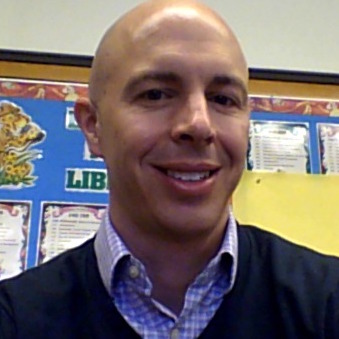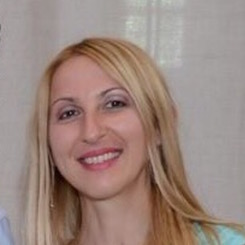LTEC @ AERA 2017
July 07, 2017

In April, the LTEC team presented at the American Educational Research Association Annual Meeting 2017. We enjoyed returning to San Antonio, TX, after our recent visit for NCTM 2017 and attending presentations to hear about the exciting work being done by colleagues past, present, and future. Some of us were also lucky enough to see the Fiesta Flambeau parade!
Our project was pleased to contribute two posters to a structured poster session entitled “Stories from the Field: Integrating Computational Thinking Across Curricular Domains.” It was a great opportunity to hear about efforts similar to ours and discuss successes and challenges with colleagues.

The session participants are currently working on a putting together a special journal issue based on the work presented in the poster session. Stay tuned for updates – we’ll let you know as soon as we have an expected publication date.
Below you will find a summary of our poster presentations for the integration session, as well as an additional poster presented by members of the LTEC team. As always, please feel free to sound off in the comments section with any feedback!
|
Building Mathematics+Computational Thinking Trajectories from Literature
Katie Rich, Carla Strickland, and Cheryl Moran UChicago STEM Ed Jelena Pokimica and Quinn Wherfel University of Illinois at Urbana-Champaign |
|
  
|
Description of Presentation:
Given recent calls for integration of computer science (CS) into K-12, scholars and practitioners are exploring how CS concepts might best be developed across grade levels. We conducted a wide-ranging literature review designed to synthesize methodological research about CS learning goals for K-5 into a set of coherent learning trajectories (LTs). We focus specifically on computational thinking (CT) and how it might map onto existing mathematics LTs.
Poster |
</tr>
|
From Classroom Lessons to Learning Trajectories: Mathematics + Computational Thinking
Maya Israel, Todd Lash, George Reese, Jelena Pokimica, Gakyung Jeong, Quinn Wherfel, and Oliver Melvin University of Illinois at Urbana-Champaign |
|





|
Description of Presentation:
A primary reason for integrating computational thinking (CT) and computer science (CS) into mathematics instruction is to address underrepresentation of people from diverse backgrounds in computing. However, there is lack of guidance in how to develop such integration. The purpose of this study was to begin to develop learning progressions that integrate mathematics and CT. This study provides an initial insight into how mathematics and CS/CT can be integrated at the elementary level. The emerging trajectories and integrated units can be refined and amended to develop a more complete set of integrated materials that teachers can implement across the grades.
Slides |
|
Including Students With Disabilities in CS for All: Research Findings and Implications for Practice
Maya Israel, Moon Y. Chung, Quinn Wherfel, Saadeddine S. Shehab, Jelena Pokimica, Gakyung Jeong, and Todd Lash University of Illinois at Urbana-Champaign | |




|
Description of Presentation:
CS for All addresses the need to increase the level of inclusion of all students in CS education, especially for girls and students from diverse cultural backgrounds. However, participation of students with disabilities is often missing from this discourse. Approximately 6.4 million students with disabilities receive special education services in the US. Most of them attend regular schools, and usually, instruction occurs alongside their peers. This means that students with disabilities should have access to K-12 computer science (CS) instruction despite the anticipated challenges they face. This study examined the unique challenges that students with disabilities face during computing instruction and began to develop interventions that address those challenges.
Slides |